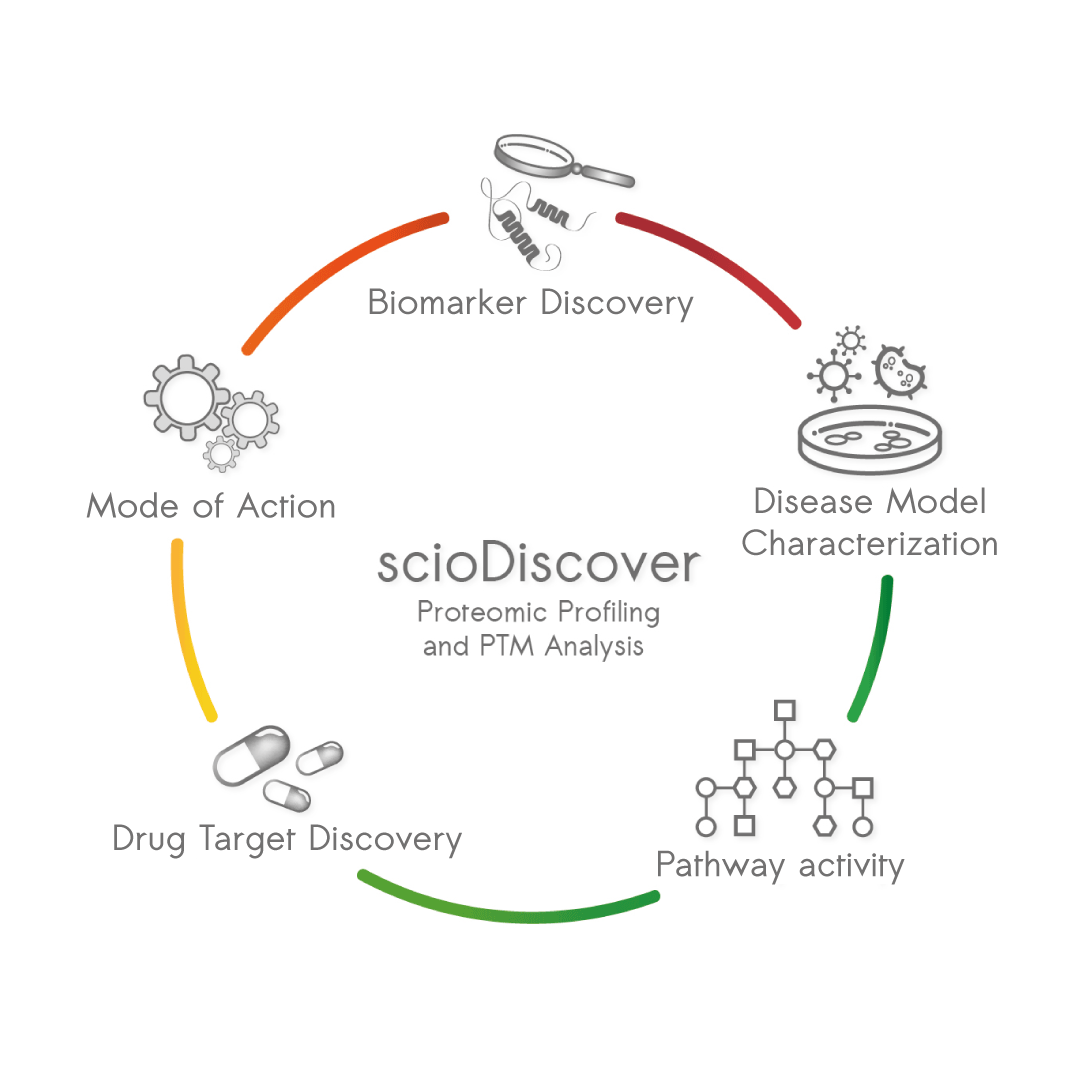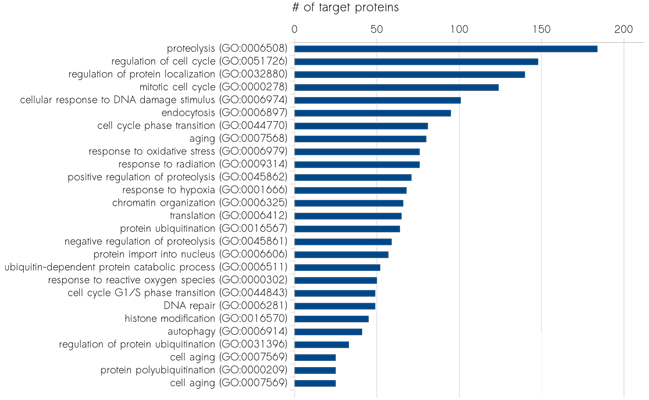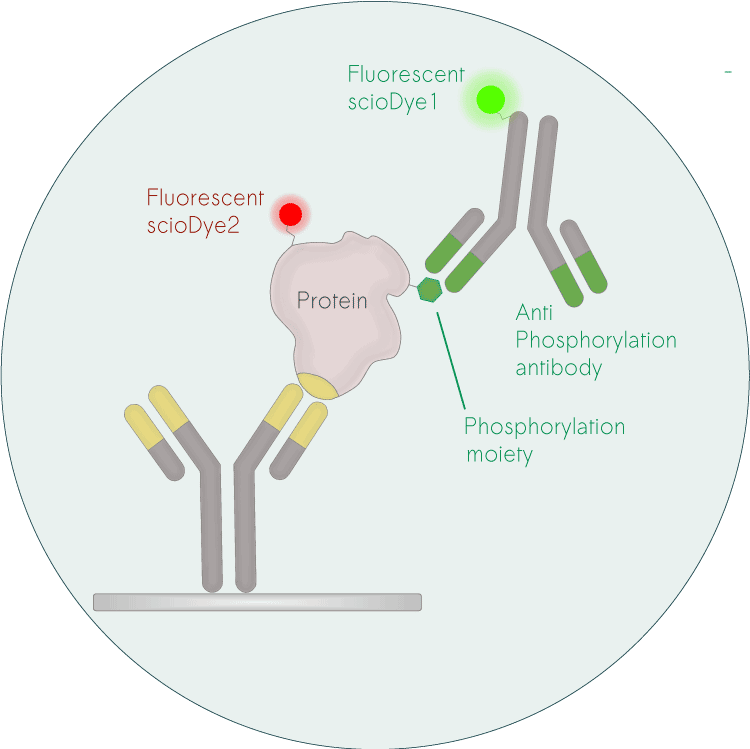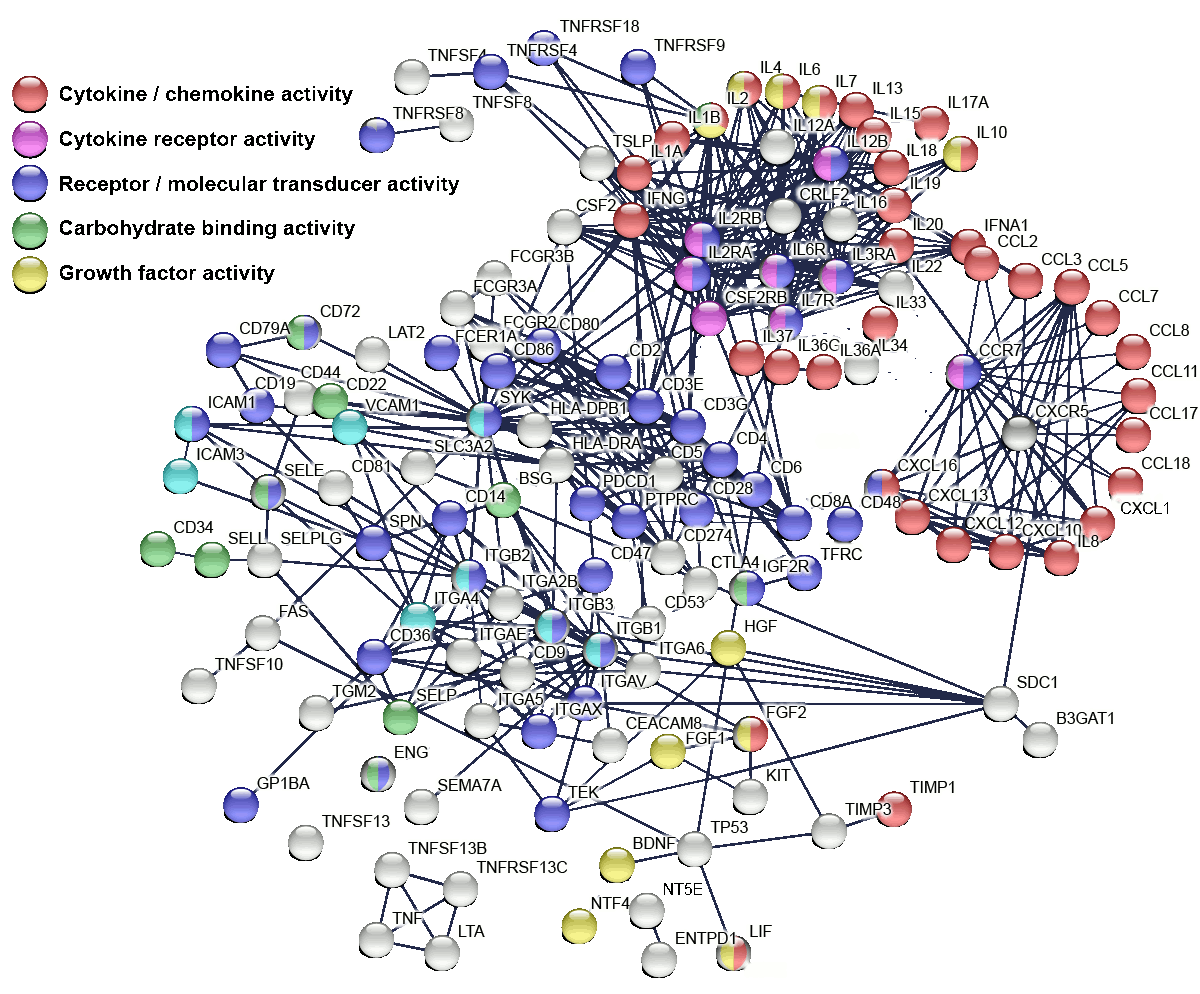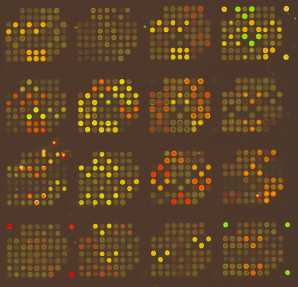
Immune response profiling
Cellular composition and signalling
CD-Marker Expression Profiles
Our scioCD profiling service covers 349 different proteins:
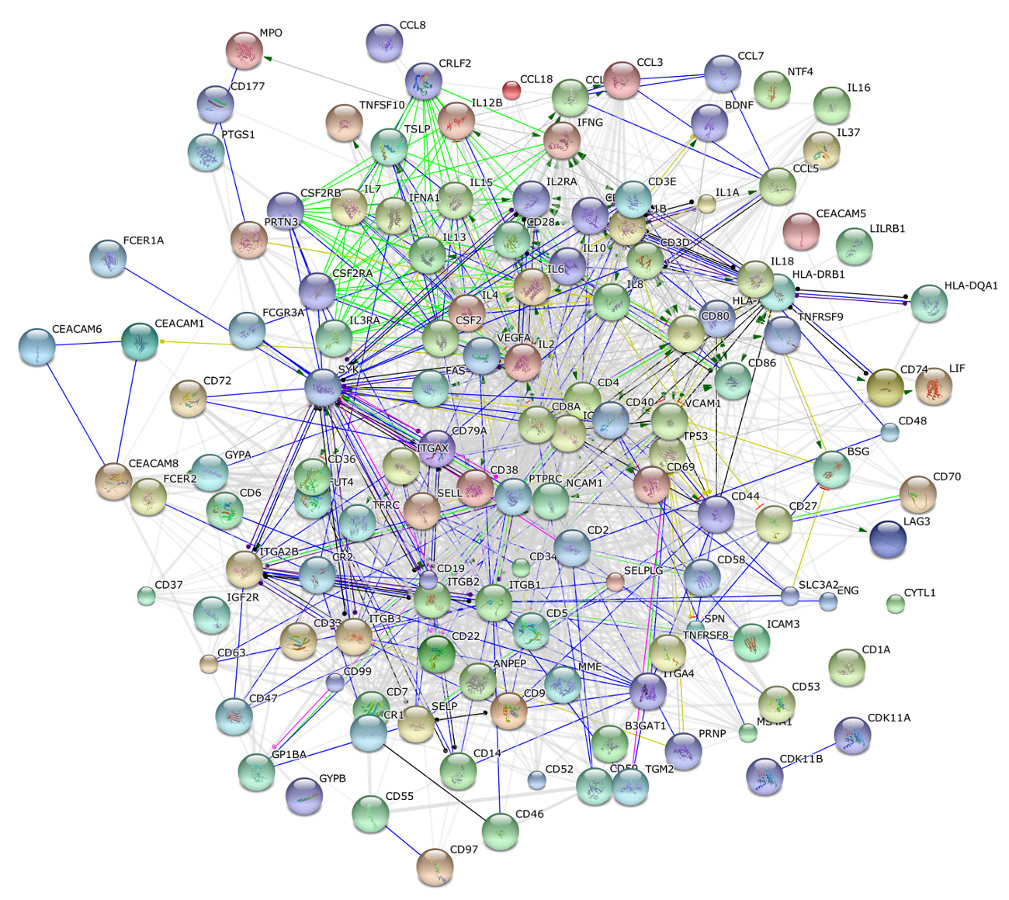
- up to 141 unique CD-marker molecules
- up to 119 Cytokines/Chemokines
- other relevant proteins such as various HLAs and p53
All these proteins can be analysed in parallel within a single experiment from minute sample amounts. Thereby, scioCD antibody array analysis service is ideally suited to investigate cell composition of samples and signalling in a highly parallel, fast and robust fashion. In addition, protein distribution in blood samples (plasma / serum) can be analysed efficiently.
scioCD is a complete sample-to-result service for a variety of different sample types. The respective protocols were developed over a period of 15 years and are optimised towards highest possible sensitivity combined with high reproducibility (coefficients of variation below 10%).
Analysis
Service Sample
Types Contact
us
Applications
|
Advantages
|
The assay
Which sample types can be analysed ?
Within our scioCD analysis service the following samples can be analysed:
- plasma or serum
- fresh frozen tissue samples
- cellular samples
- cell culture samples
- cerebrospinal fluid (CSF)
- additional sample types on request
Sample-to-result service
Within the analysis service, we will not only carry out the microarray experiments but also support you with a suggestion for an appropriate microarray study design as well as with the sample selection process in order to address your scientific question in the optimal way. Within 3-4 weeks after receipt of your samples you will receive a customised study report including a statistical analysis.
Our analysis service includes:
- definition of an appropriate study design
- sample preparation
- protein extraction
- protein concentration measurements
- protein quality control
- sample labelling
- sample purification
- incubation of the samples on antibody microarrays
- microarray scanning
- raw data acquisition
- data normalisation
- data analysis including cluster analysis
- statistical testing for differentially abundant proteins
- comprehensive study report
